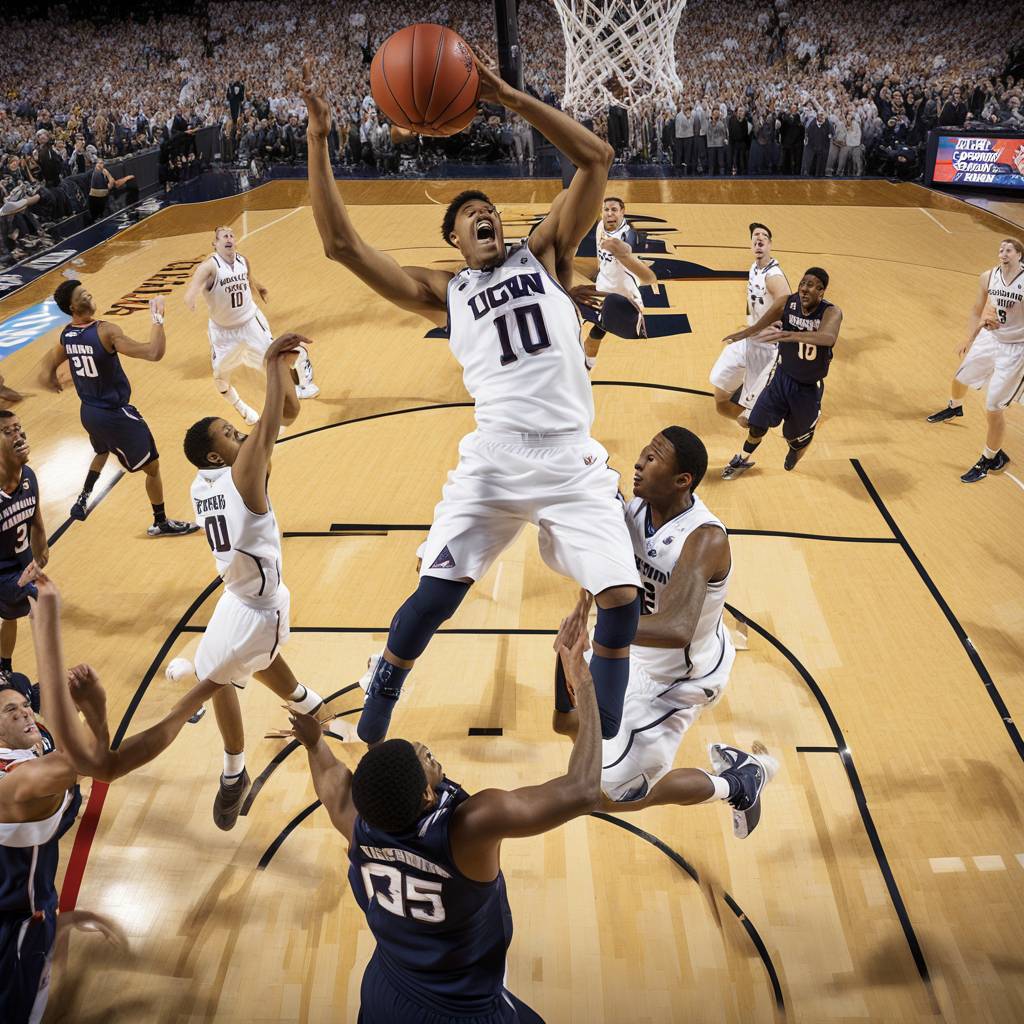The women’s NCAA Tournament semifinal between Iowa and UConn ended controversially with a foul call in the final seconds of the game. Aaliyah Edwards was called for an offensive foul while setting a screen on Gabbie Marshall, leading to UConn coach Geno Auriemma’s frustration. ESPN analysts Scott Van Pelt and Andraya Carter also disagreed with the call, feeling it took away the opportunity for players to make plays. The post-game reactions were mixed, with Edwards believing the play was clean and Paige Bueckers emphasizing that one play doesn’t determine the outcome of a game.
The officiating in this tournament has faced scrutiny before, with incidents such as Hannah Hidalgo being forced to remove her nose ring mid-game and an official being replaced at halftime for failing to disclose a connection to one of the playing schools. The controversy surrounding the foul call in the Iowa-UConn game adds to the ongoing discussion of accountability and transparency in women’s officiating. Players and coaches have differing opinions on the impact of officiating on the game, with Bueckers highlighting the importance of players deciding the outcome rather than one single call.
During the post-game news conferences and in the locker rooms, views were divided on the controversial foul call at the end of the Iowa-UConn semifinal. While Edwards defended her play as clean, Bueckers and other players emphasized the need for players to take responsibility for the outcome of the game. Gabbie Marshall, who was involved in the play, recalled feeling the elbow and noted that there was video evidence of the incident. The spotlight on the officiating in the women’s NCAA Tournament raises questions about fairness and consistency in officiating standards.
The focus on the controversial foul call in the Iowa-UConn game has reignited discussions about the role of officiating in determining the outcome of basketball games. The incident has sparked debates among fans, analysts, and players about the impact of referee decisions on the game. Marshall’s defensive prowess was highlighted by Iowa’s Hannah Stuelke, who praised her teammate for making critical plays in crucial moments. The incident has brought attention to the challenges and controversies surrounding officiating in women’s college basketball tournaments.
The controversy surrounding the foul call in the Iowa-UConn semifinal has overshadowed the on-court performances of players like Caitlin Clark and the anticipation of the championship matchup between Iowa and undefeated South Carolina. The frustration expressed by UConn coach Geno Auriemma and the disagreement among analysts and players reflect the complexities of officiating in high-stakes collegiate tournaments. The ongoing discussion about accountability and transparency in women’s officiating highlights the need for consistency and fairness in referee decisions to ensure the integrity of the game.
Overall, the controversy surrounding the foul call at the end of the Iowa-UConn semifinal has sparked debates about the role of officiating in determining the outcome of basketball games. The incident has raised questions about fairness, transparency, and accountability in women’s college basketball tournaments. While players and coaches have differing views on the impact of officiating on the game, the incident has emphasized the need for players to take responsibility for their performances and decisions on the court. The spotlight on the controversial foul call adds another layer of drama and intrigue to the women’s NCAA Tournament, underscoring the challenges and controversies that come with high-stakes competition.


